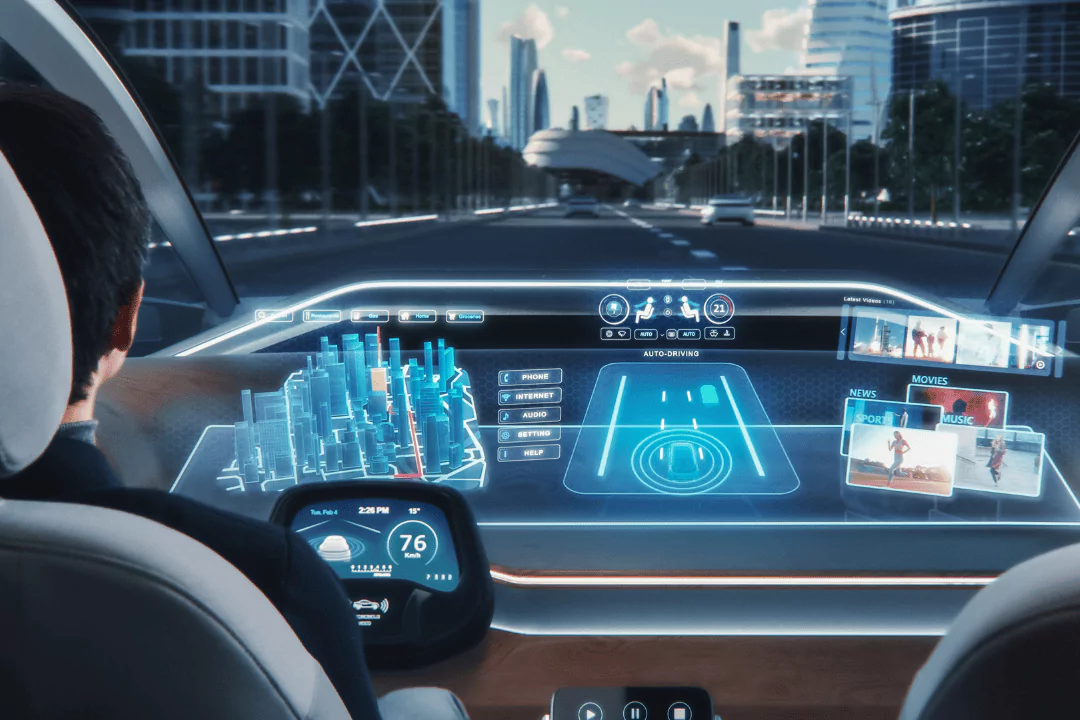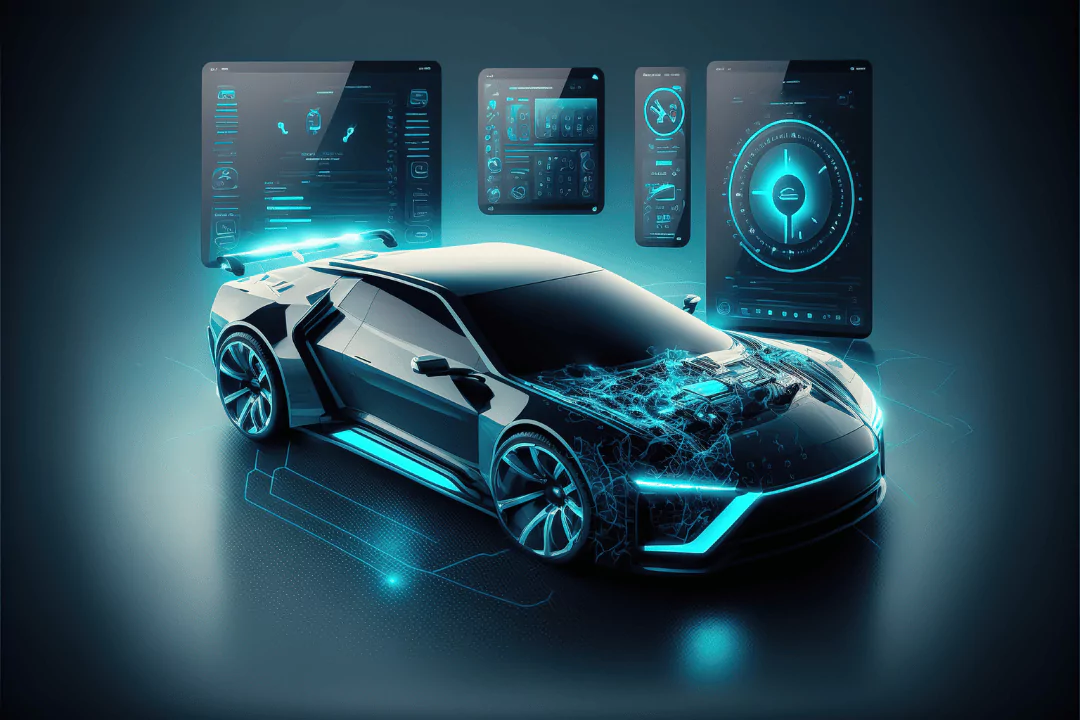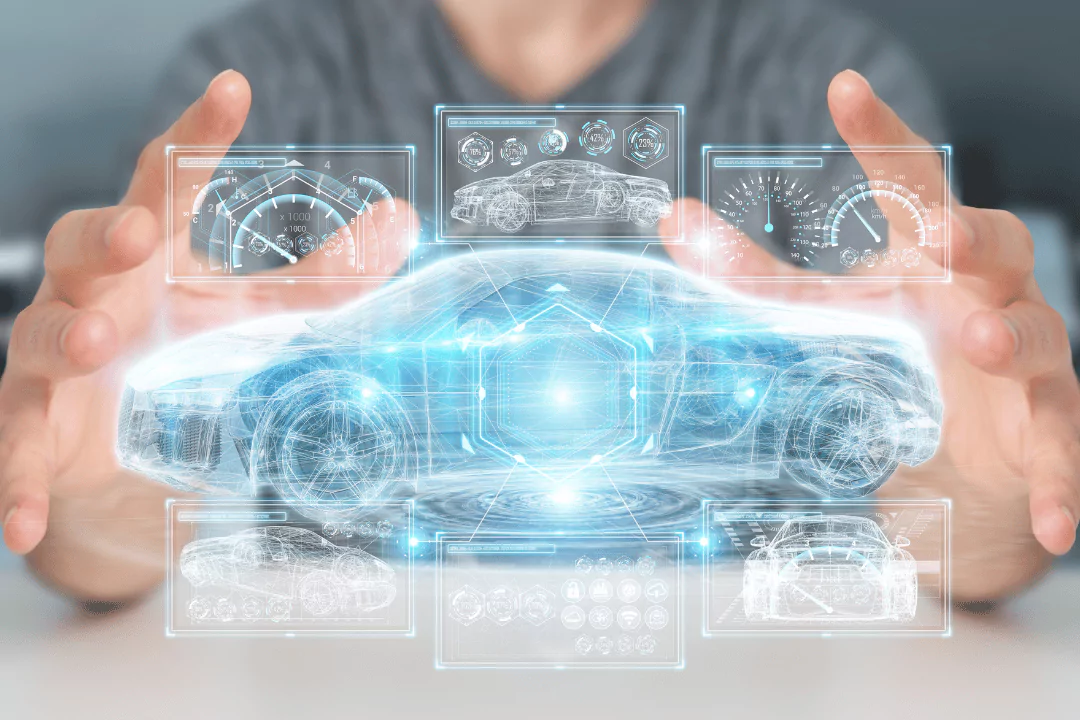Generative AI is revolutionizing mobility with innovations in design, predictive maintenance, and personalized in-car experiences, pushing the limits of automotive technology.
Successful AI integration requires strong partnerships between traditional automakers and tech companies to unlock new capabilities in vehicle development and customer engagement.
As AI becomes more integral to mobility, ensuring robust cybersecurity measures is essential to protect against emerging threats and safeguard connected vehicles.
Think of self-driving cars, ultra-customised rides, and cars that can fix themselves. GenAI is shaking up the auto world, making everything safer and more efficient. GenAI is the ultimate game-changer for automotive OEMs. Ready for the future?
Introduction
GenAI, or generative AI, is the latest breakthrough in artificial intelligence, designed to leverage vast amounts of data and multimodal capabilities to solve complex problems on a large scale. This cutting-edge technology is now set to revolutionise the automotive industry, offering unprecedented opportunities for innovation and improvement.
Envision a future where cars drive themselves, safety standards are unparalleled, efficiency is maximised, and driving experiences are personalised. GenAI can predict maintenance needs, optimise supply chains, and create a hyper-personalised user experience. Its potential to transform vehicle design, driving simulations, and smart city traffic management is immense. The potential of GenAI to transform the auto world is mind-blowing.
An irresistible proposition
Some of the core capabilities of GenAI which makes it very attractive and irresistible for its adoption:
- Large action: GenAI is capable of performing “large action”. It can perform a complex task by breaking it down to manageable sub-tasks and integrate the results. This “large action” skill means it handles the details like a pro, so you don’t have to.
- Adaptability: GenAI systems are being developed with agent driven architecture which uses several agents which in turn uses several LLMs. It can handle diverse topics and scenarios beyond its initial scope.
- Multimodality: Unlike traditional AI, GenAI can process various input formats such as images, text, charts, tables, and sensor data, demonstrating flexibility across different domains—just like a human.
- Cognitive Abilities: GenAI can plan, learn cognitive abilities, make sound judgments, handle uncertainties, and draw from past knowledge to improve accuracy.

Automotive Innovation with GenAI
The automotive industry has always been quick to embrace cutting-edge technologies, and AI has been at its forefront. Generative AI is already being touted to revolutionise how cars are being built for the future. Be it boosting operational efficiency in manufacturing, improving car performance with predictive models, or in-cabin experience with sleek design ideas and suggestions, GenAI is set to revolutionise the car development lifecycle at every stage.
Data from different research suggests, AI / GenAI-based intervention has optimised the logistics chains to keep the service part availability by 20% without changing anything at the input side or a 10 to 15% decrease in the maintenance cost of vehicles.
In the next section, we’re diving into the magic of AI and GenAI, showing how these technologies will improve the overall experience and at the same time make the journey smoother, faster and extremely safe.
Improved Personalisation and In-Vehicle Experience
As AI takes the wheel in the vehicle software, cars are already showing cognitive functions which can learn from the user preferences, habits, and needs of their drivers and passengers, and provide a tailored and comfortable experience.
Picture this: your car learns your preferences, habits, and needs, and creates a cosy customised ride. AI adjusts your seat, sets the perfect temperature, fine-tunes the lighting, picks your favourite tunes, and maps your route—all based on your profile and mood. An AI-powered car can also recommend nearby attractions, restaurants, or shops, based on the driver’s interests and past preferences.

With generative AI, personalisation of vehicles can also extend to the exterior design and features, as well as the performance and maintenance of the car.
Now your customers can create their own unique designs and customisations, based on their preferences and inputs even during the early design stage. Generative AI can also suggest optimal configurations and enhancements, based on the customer’s needs and budget.
AI in Action
Tata Elxsi is leading the charge with AI solutions that bring voice and gesture control, facial recognition, and biometric authentication, to make the interaction with the car more natural and secure. We are working with a leading global OEM to help realise this.
With Generative AI, some of these capabilities can be further augmented. It gives the ability to monitor the vehicle’s condition, and performance, offering feedback and suggestions for improvement, such as sustainable driving, maximising your car’s lifespan, boosting safety and comfort, and suggesting some health tips. By personalising the vehicles, GenAI can increase customer satisfaction by a few notches, loyalty, and retention.
By adopting GenAI, OEMs can avoid the innovation plateau and embark on a journey where this becomes an important force vector for the flywheel of innovation at every stage of vehicle manufacturing. GenAI technology becomes a force multiplier for innovation, driving new revenue streams and business models across the entire vehicle lifecycle – from design and production to sales and service.

GenAI-Powered Product Development- Co-pilot for Manufacturing
Just like co-pilots in the software world, which boost productivity and streamline project management, GenAI co-pilots are ready to revolutionise manufacturing.
The Software industry has been embracing the co-pilot system to increase the overall productivity and claiming to increase the efficiency to 30 to 40%, thanks to their insights, issue-spotting skills, and risk assessment smarts.
Now imagine a similar co-pilot for manufacturing. This digital buddy can oversee the key workflow processes, understand critical. This enables the realisation of a ‘Digital Twin’ for the manufacturing process, allowing for improved emulation and prediction of outcomes. It highlights potential issues at an earlier stage and provides actionable suggestions. As the automotive industry advances toward a future dominated by Software-Defined Vehicles, GenAI-powered production systems will provide OEMs with a future-proof solution. They need to rejig the system accordingly to make the process future-proof.
Resilience against Cyberthreat
As vehicles become more software-intensive, they are increasingly vulnerable to cyber-attacks. A robust cybersecurity framework is essential to protect software integrity, data privacy, and user safety. Generative AI can generate diverse test cases simulating cyber-attack profiles and data anomalies, creating a robust defense system.
AI in Action
Tata Elxsi and IISc research team, is at the forefront of this cyber battle. Together we are developing a cutting-edge cyber security testing platform for vehicles, helping OEMs to address all types of digital threats.
How Vehicles will ‘WoW’ us in 3-5 years
If we have to conjure up the future of vehicles and how it will shape up in 3 to 5 years horizon, here’s what’s revving up:
- Hyper-personalised Software Defined Vehicles: Everything will be hyper-personalised, from the car colour and skin to illuminated tyres, and entertainment. Need an office on wheels? Switch to office mode. Planning a road trip? Hit vacation mode. Conference call? Yep, there’s a mode for that too.
- Self-heal cars: Future vehicles will be capable of diagnosing their issues and resolving basic problems on the go by coordinating with AI-based systems, all while maintaining passenger safety.
- Smart cars with higher cognitive abilities: These brainy vehicles will seamlessly integrate with infrastructures like smart city systems and V2X systems. It would strive towards a ‘zero incident’ scenario using its increased cognitive abilities.
- Sustainable driving: Environmentally responsible cars will incorporate ESG elements into the design and promote eco-friendly driving contributing to reduced emissions and fuel consumption.
- Always truly connected: Future cars will become always connected using satellite communication, ensuring enhanced safety features even in the remotest corners of your journey.
Are you prepared for a groundbreaking transformation in the future of driving with GenAI?
Author
Biswajit Biswas
Chief Data Scientist, Tata Elxsi
Biswajit Biswas stands at the forefront of AI-driven transformation. With over a decade experience in leveraging AI to solve complex business challenges, Biswajit has a keen focus on responsible and ethical AI practices, and has developed cutting-edge AI solutions in Healthcare, Automotive and Media.
